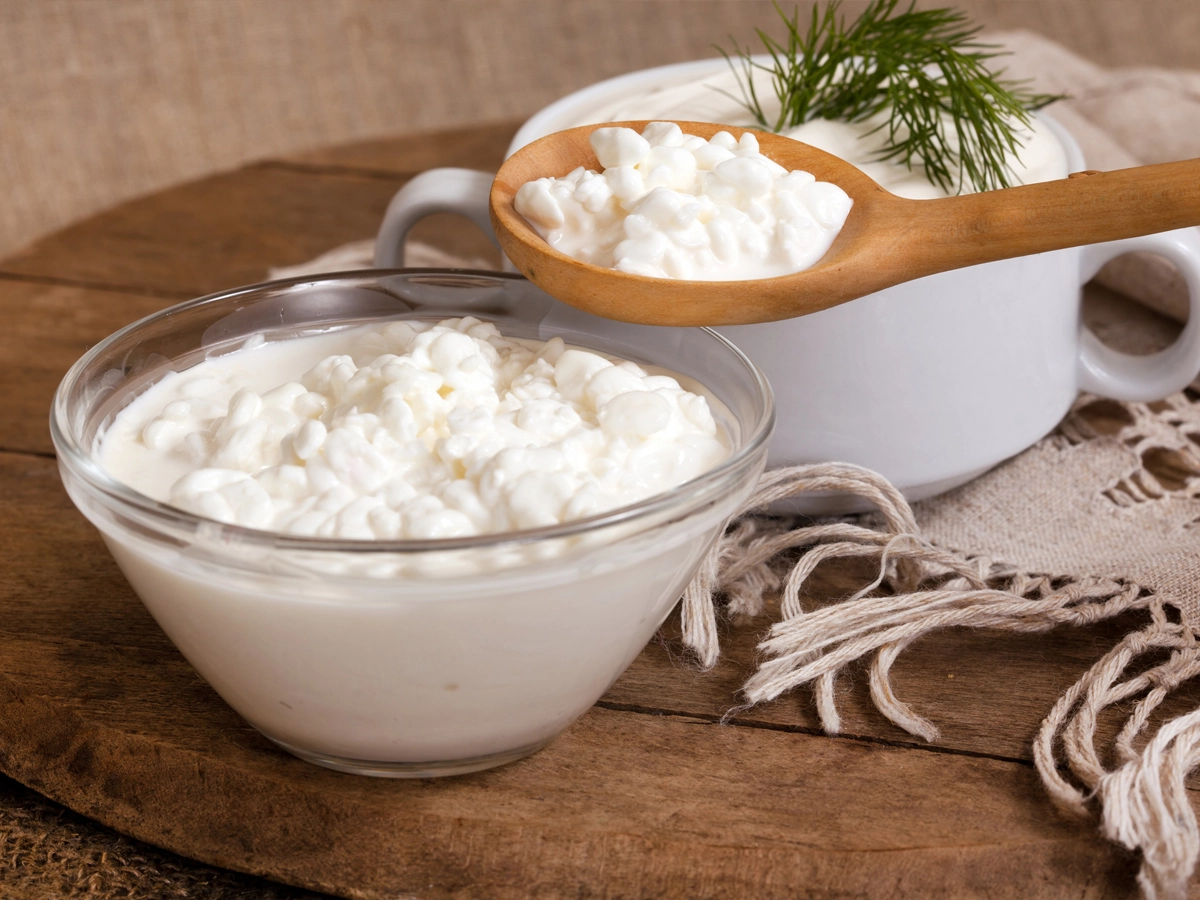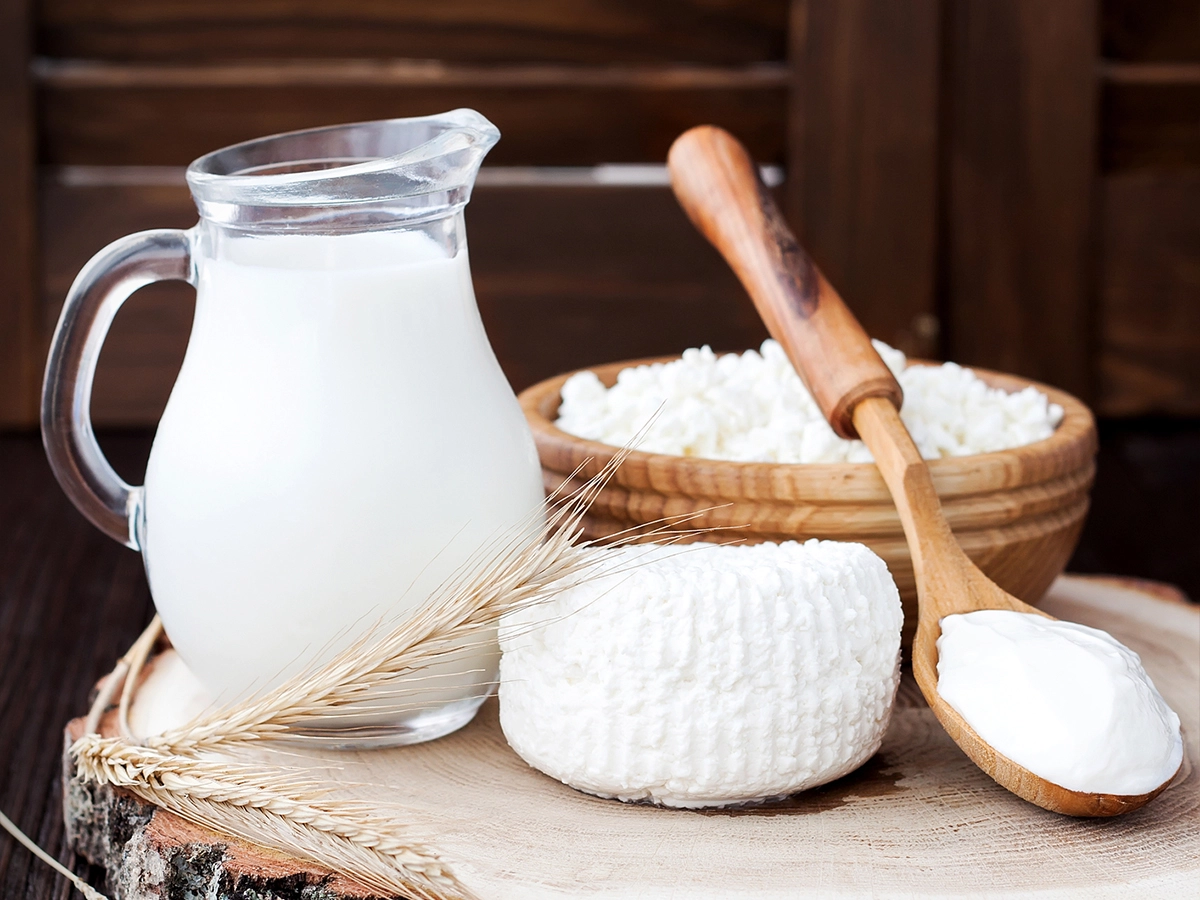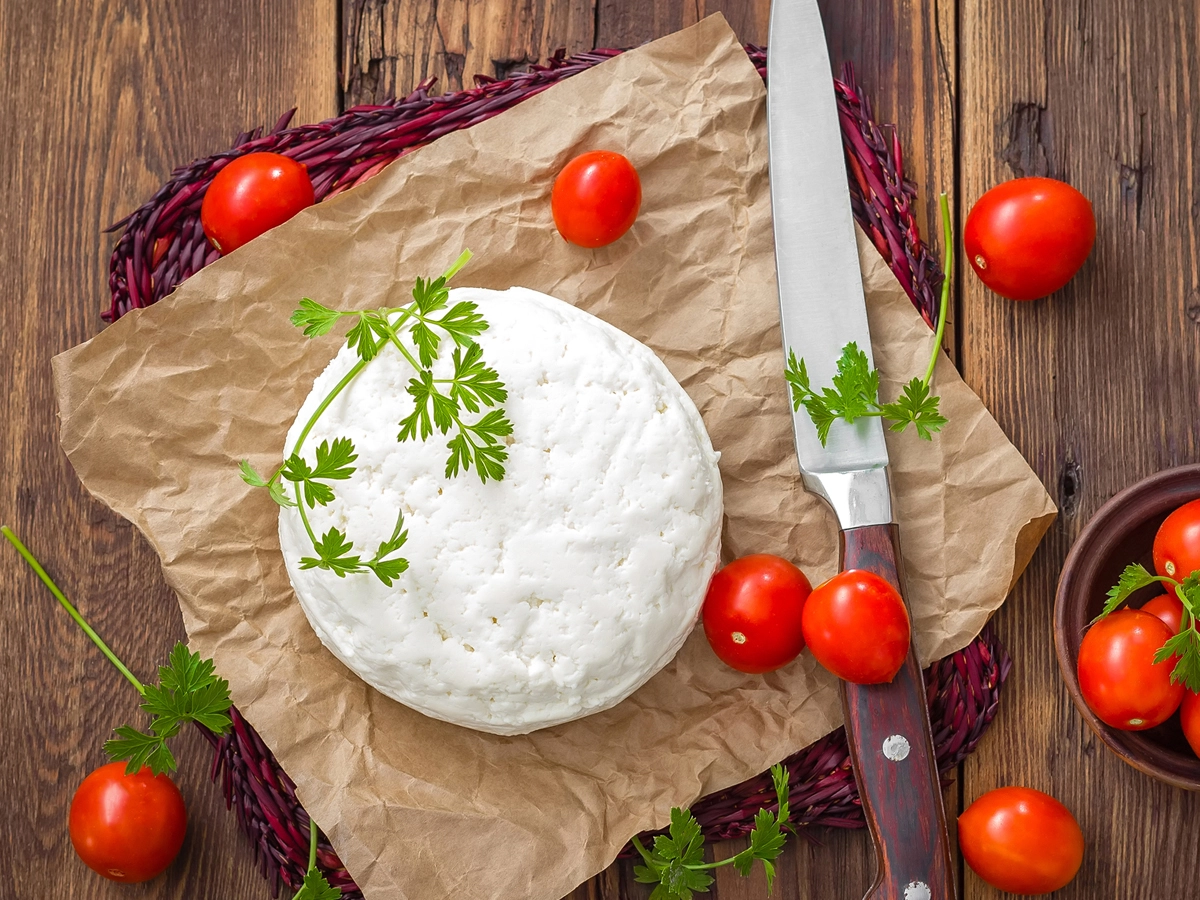An essential first step to making homemade cheese is making sure that you have all of the necessary equipment and ingredients before you begin.
Below is a list of essential cheesemaking equipment and ingredients that will get you started on your homemade cheese adventure.
Also, be sure to check out my favorite cheesemaking cookbook, The Beginner's Guide to Cheese Making: Easy Recipes and Lessons to Make Your Own Handcrafted Cheeses by Elena R. Santogade filled with lessons on making your own cheeses.
The first step in cheesemaking is gathering all the supplies! Your kitchen likely already contains many of these tools and supplies needed for home cheesemaking:
1. Large Stock Pot
Think of this large pot as your very own mini vat. The stockpot or vat will be used to heat, culture, and coagulate your milk into curd. It takes a lot of milk to make a little bit of cheese, so a large stockpot is necessary to hold at least 2 gallons of milk. A stainless steel pot with a heavy bottom or high-quality enamel pot is best.
Avoid pots made of aluminum and other reactive metals.
Nonreactive cookware: Stainless steel, ceramic, glass, metal cookware with enamel coating, plastic (food-grade is best)
Reactive cookware: Aluminum, cast iron, and copper
See Through Lid
Heavy Duty Induction Ready
Last update on 2025-05-18 / Affiliate links / Images from Amazon Product Advertising API
2. Thermometer
The thermometer for cheesemaking must be reliable, accurate, and waterproof. Choose one that clips to the side of the pot.
3. Measuring Spoons and Cups
Any measuring spoons and measuring cups will suffice; just be sure that they are nonreactive and clean.
Mini Measuring Spoon Set is ideal.
Heavy Duty Thick Steel
Last update on 2025-05-18 / Affiliate links / Images from Amazon Product Advertising API
4. Long-Handled Spoon (or skimmer)
A long-handled skimmer spoon is handy to use with a large pot. Pick a comfortable one because it will be used frequently, adding a starter culture, rennet, stirring, and scooping curds.
Strainer Ladle for Cooking
16.9 Inch
Last update on 2025-05-18 / Affiliate links / Images from Amazon Product Advertising API
5. Large Bowl
A large stainless steel bowl is a must with the volume of ingredients required for making homemade cheese. A 13-quart or larger will do the trick, and it will undoubtedly come in handy with other recipes.
This high-rimmed bowl can help users perform a variety of kitchen duties, from cracking eggs to mixing batter-you'll definitely want more than one.
Last update on 2025-05-18 / Affiliate links / Images from Amazon Product Advertising API
6. Colander/Strainer
A colander is used for draining whey from cheese curds. Any nonreactive material (plastic, metal, enamel) will work. As with other utensils, avoid aluminum and other reactive materials, even when lined with cheesecloth.
Dishwasher Safe
Last update on 2025-05-18 / Affiliate links / Images from Amazon Product Advertising API
7. Cheesecloth and Butter Muslin
Most cheese recipes require the cheese to be drained, so cheesecloth and butter muslin is a must-have in your kitchen. The Butter muslin can be washed and reused, while the cheesecloth is a one-and-done kind of product.
Home Cheesemaking Ingredients
8. Milk
The most critical ingredient of all is milk! You can use several kinds of milk, but always use the best-quality dairy you can find.
Raw milk is the best choice. Goat's milk or cow's milk are both great options.
Next is fresh milk that is pasteurized.
Avoid milk that has been ultra high-temp pasteurized (UHT), as its proteins will not coagulate properly for cheesemaking.
9. Cultures
The Mesophilic cheese cultures are sold as freeze-dried powders, often in blends formulated explicitly for a specific cheese recipe. You can find them packaged for cream cheese, cheddar cheese, …
Starter cultures are what "start" the fermentation process by lowering the milk’s pH. It's the secondary cultures that add characteristics that show up in a finished cheese with rinds and blue veins.
5-Pack
Makes Cheddar, Monterey Jack, Stilton, Edam, Gouda, and more
Last update on 2025-05-18 / Affiliate links / Images from Amazon Product Advertising API
10. Rennet
These enzymes—which come from animal, vegetable, or microbial sources are what coagulate the milk into a stretchy curd, similar to gel. the rennet is what makes it possible to separate the whey from the fat and protein in the milk, result in cheese.
- These vegetable rennet tablets contain no animal products, are gluten free and NON-GMO
- Each tablet is scored into 4 segments, making it easy to break into smaller amounts for home cheese making
- ½ tablet will set 2 gallons of milk in approximately 45 minutes
Last update on 2025-05-18 / Affiliate links / Images from Amazon Product Advertising API
11. Cheese salt
Why use a different salt for cheese? For cheesemaking, we want a flaky salt, which helps it adhere to the surface of a wheel. Always buy a non-iodized salt so that the cultures can flourish properly.
No Additives
Last update on 2025-05-18 / Affiliate links / Images from Amazon Product Advertising API
12. Acid
Not all cheese recipes call for acid but when they do, citric acid, lemon juice, or buttermilk with active cultures can all be used to make cheeses like mascarpone, ricotta, paneer, and some mozzarella.
Last update on 2025-05-18 / Affiliate links / Images from Amazon Product Advertising API
13. Heavy Cream
Heavy cream is used for culturing into creme fraiche or cultured butter or using to make mascarpone. Always avoid UHT cream when making cheese or other cultured dairy delights.
RELATED FERMENTATION GUIDES
This article highlights all of the key supplies used for making cheese at home, so you can start making your own too! Now that you've learned all about the tools needed to get started fermenting cheese, here are a few things that you might find interesting...













